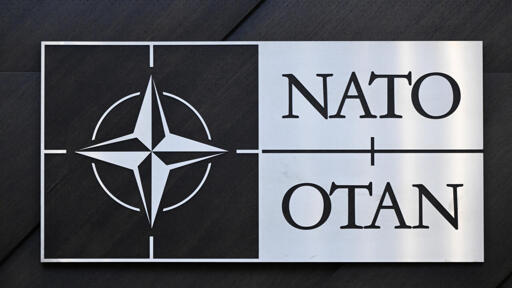xiao
Your worst still friendly friend
- 1.2K Posts
- 406 Comments

 4·2 days ago
4·2 days agoAccording to a police summons dated Friday and seen by AFP, Chambers is accused of “insulting or showing malice towards the king, queen, heir to the throne, or regent”, as well as “introducing counterfeit computer data that could threaten national security”.
Chambers told AFP the charge stems from remarks he made during a webinar held last year in which he discussed the relationship between the Thai military and the monarchy during a question-and-answer session.

 3·2 days ago
3·2 days agoTextile and garment production accounts for about 80 percent of exports in Bangladesh and the industry has been rebuilding after it was hit hard in a student-led revolution that toppled the government last year.
US President Donald Trump hit Bangladesh with biting new tariffs of 37 percent on Wednesday, hiking duties from the previous 16 percent on cotton products.
Reports of the swift biting impact come as interim leader Muhammad Yunus pleaded with Trump to “postpone the application of US reciprocal tariff measures”, the government said in a statement.
Yunus wrote to Trump to ask for “three months to allow the interim government to smoothly implement its initiative to substantially increase US exports to Bangladesh”, the statement added.
Those products include “cotton, wheat, corn and soybean which will offer benefits to US farmers”, it read.
“Bangladesh will take all necessary actions to fully support your trade agenda,” Yunus told Trump, according to the statement.
Manufacturers said the impact had been near immediate.
Mohammad Mushfiqur Rahman, managing director of Essensor Footwear and Leather Products, said he received a letter from one of his buyers requesting a shipment halt.
“My buyer asked me to stop a shipment of leather goods – including bags, belts, and wallets – worth $300,000 on Sunday,” Rahman told AFP.

 24·3 days ago
24·3 days ago“We will follow the example of Martin Luther King, who defended civil rights,”
Facists have no limit 😂

 8·6 days ago
8·6 days agoLa technique secrète du «en même temps», comme une impression de déjà-vu.

 51·7 days ago
51·7 days agoSyrian state media said the strikes hit close to a defence research centre in Damascus, among other sites, while a war monitor reported four dead in the latest Israeli attack on Syria since Islamist-led forces ousted longtime ruler Bashar al-Assad.
“In a blatant violation of international law and Syrian sovereignty, Israeli forces launched airstrikes on five locations across the country,” the Syrian foreign ministry said in a statement on Telegram.
“This unjustified escalation is a deliberate attempt to destabilise Syria and exacerbate the suffering of its people.”
It said the strikes resulted in the “near-total destruction” of a military airport in central Syrian province Hama, injuring dozens of civilians and soldiers.
Syria’s SANA news agency reported a strike that “targeted the vicinity of the scientific research building” in Damascus’s northern Barzeh neighbourhood, and a raid in the vicinity of Hama, without specifying what was hit.
Quite agree with point number 1, moreover the fact that those you re following boost everything they like tends to cause a kind of “spam”, I think developers should dissociate the Boost button from the “Like” button.

 4·9 days ago
4·9 days agoC’est nous qu’on sait : le RN - La Chronique de Yann Guillarme dans “La riposte”

 8·10 days ago
8·10 days agoAmericanSwedish History X

 2·10 days ago
2·10 days agoAn estimated 90,000 abortions are performed annually in Sierra Leone, a country of more than 8 million people, according to research by the African Population and Health Research Center. About 10% of the country’s maternal deaths — affecting 717 of every 100,000 births — are due to unsafe abortions, the center said.
Health workers say the true number is likely much higher.
Due to cost and stigma, many women and girls resort to unsafe methods like expired medication, laundry detergent, hangers or sharp instruments.

 8·13 days ago
8·13 days agoThese people who think they are more important than others…

 8·13 days ago
8·13 days agoSur le sé®vice public, vous n’avez pas honte !
Bar’s dismissal provoked the anger of the opposition and led to demonstrations accusing Netanyahu of threatening democracy.
Several thousand people braved bad weather late Thursday to demonstrate outside Netanyahu’s private residence in Jerusalem and then the Israeli parliament, where ministers were meeting.
In a letter made public on Thursday, Bar said Netanyahu’s arguments were “general, unsubstantiated accusations that seem to hide the motivations behind the decision to terminate (his) duties”.
He wrote the real motives were based on “personal interest” and intended to “prevent investigations into the events leading up to October 7 and other serious matters” being looked at by the Shin Bet.
He referred to the “complex, wide-ranging and highly sensitive investigation” involving people close to Netanyahu who allegedly received money from Qatar, a case dubbed “Qatargate” by the media.
Bar’s dismissal comes after the Israeli army launched a series of massive and deadly bombardments on the Gaza Strip on Tuesday, following a two-month truce and “targeted” ground operations.
Netanyahu said the operations were intended to put pressure on Hamas to release the 58 hostages remaining in the territory.
In rare criticism of Netanyahu, Israeli President Isaac Herzog said Thursday that he was worried the resumption of strikes in a time of crisis could undermine “national resilience”.
Merci pour tous vos efforts et le don de votre temps.

 4·21 days ago
4·21 days agoHonteux

 1·22 days ago
1·22 days agoLa relève est assurée !!
The implementation of such a system would therorically allow each person from the age of 18 to benefit from a basic wage of around 1600 €/month (even by studying) up to a maximum of 6,000 €/month according to a level of qualification validated by a specific method. This system could prevent the exploitation of the mass by the rich because people would not be forced to work for them. And mechanically would greatly impact capitalism.
The notion of individual qualifiction (qualification personnelle) needs to be distinguished from that of a mere certification, because in such a system the qualification would imply a compulsory remuneration from the employer, fixed by the collective agreements of a branch. Having a diploma does not necessarily guarantee access to a wage. Instead it provides the legitimacy to claim a post on the labour market.
Individual qualifications aim at granting irrevocable levels following the model of the current French civil service. Thus, according to a democratically chosen wage scale, wage progression would take place through a grade increase throughout an individual’s career.
After like any system, we can have criticism.
“Qualification-based wage for life” could be a solution.
https://en.m.wikipedia.org/wiki/Qualification-based_wage_for_life
For those wishing to know more there is a popular video (subtitles in English available)























Pas exactement ça mais il existe :
https://fondspresselibre.org/